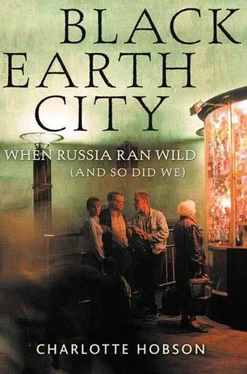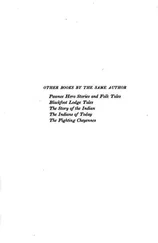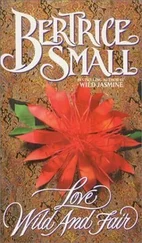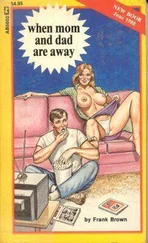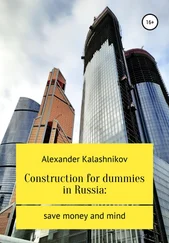“Going to spend the New Year with family, eh? Quite right, use the railways while you can, it’s only a matter of time before they’re sold off to the capitalists!”
She laughed and the kindly middle-aged couple occupying the bunks opposite joined in, demurring a little. “Oh, come now—”
They had changed into matching royal-blue sweatsuits for the journey. Once the conductor had gone, the wife plumped down by the window, shifting her bottom until she had made a comfy hollow for herself. Then she nodded at her husband, who pulled a bottle of champagne out of the sports bag under his feet.
“Well,” he said. “Let’s go then, shall we?”
The fourth member of our compartment, a pale, silent young man, managed a timid smile. “Let’s go!”
I had no bottle of my own to produce, but the Christmas cake went down well. The nice couple, who were engineers in the metal industry, helped themselves to second wedges and exclaimed at its tastiness. When we had been talking for a while, the pale young man joined in, volunteering the information that he was a violinist from Uzbekistan. His name, he told us shyly, was Genghis. Well, there was no stopping us after that. Mr. Engineer reminisced about the walking holiday he had taken in Central Asia, oh, it must have been twenty years ago, before he’d met Mrs. Engineer. She, meanwhile, was reminded of the Uzbek orchestra she had heard in the Palace of Youth in Moscow once, how it had sent shivers down her spine.
“You’re a very passionate people, I would say,” pronounced Mrs. Engineer sagely. “Of all the peoples of the Soviet Union, I’d think—of course I don’t know for certain—but I’d think that the Uzbeks were the most passionate.”
“Yes, you’re right,” nodded Mr. Engineer. “Full of passion. I noticed it on my tour.”
Genghis blushed.
“Not that there is any more Soviet Union,” sighed Mrs. Engineer. “No more friendship of peoples.”
“Yes there is, dear,” said her husband. “Look at us all together. And the champagne’s not finished!”
She rolled her eyes. “Always the optimist,” she said, and the moment of anxiety passed. I passed around the cake again and Mrs. Engineer described her recipe for an apple pie called a charlotka , until our glasses were empty, and it was time for bed.
Perhaps it was the fever, or perhaps it was the champagne; in any case, in the morning I overslept and was woken by Mrs. Engineer as we rumbled over the iron bridge across the Voronezh river. She had changed out of her sweatsuit into a red-and-black check dress that made focusing difficult. My eyes slid shut with the effort… Suddenly we were in the station and the conductor was roaring at me. “Get up, get up, what kind of a way is this to behave on the railways!”
I scrambled off the train, still half dozing, and I was almost at the hostel before a rush of adrenalin jolted me awake. My passport, money, contact lenses, and all the presents I had bought for New Year—they had been in a bag tucked safely under the bunk, and now, no doubt, were on a mystery journey of their own.
The platform was empty by the time I returned. There was only one guard leaning on his snow shovel and gossiping with a friend.
“Where’s the train from Moscow?”
“Gone, dyevushka . Finished.”
“But where to? I left something on it—”
“Oh, Train Number 9 terminates here. It’s being cleaned.” The guard looked at my expression and heaved a sigh. “Walk down the tracks that way, and you’ll find it, if you really have to.”
“You say—walk down the tracks?”
“That’s right—just keep going. Watch out for trains, that’s all.”
It was a muffled, snowy morning and the crunch of my footsteps was loud. At the end of the platform I found a flight of steps down to the tracks, which stretched out ahead until they blurred and vanished, bordered by firs thick with snow. The spacing of the sleepers was just slightly longer than my normal pace. Everything was quiet.
After some minutes I came upon a young man digging at the side of the tracks.
“Excuse me,” I hailed him. “I’m looking for Train Number 9, from Moscow—”
“Oh yes.” He nodded, as if he’d known what I was going to ask. “Keep walking until you reach the budka , and ask again. Ask at the budka ,” he repeated, and turned back to his task.
I didn’t know what a budka was, but he was no longer listening. So I continued along the tracks. A long time passed, and then I saw an old man making his way slowly toward me.
“Please, I’m looking for Train Number 9.”
He looked me up and down and shook his head. “No, daughter,” he said. “ Dalshe . You must go farther.”
Again I continued along the tracks. It was hard work striding from sleeper to sleeper, and my feet were frozen inside their boots. At last I made out a structure in the distance, a tall, narrow hut with stairs leading up to the first floor. There seemed to be a light in the window. At the top of the stairs, the door was standing slightly open. I looked inside and a pair of figures like large plums in railway uniform swiveled to stare at me in astonishment.
“Forgive me for disturbing you, but I’m looking for the budka —well, in fact, my bag—it’s being cleaned, the train—from Moscow—”
“Moscow?” said one, doubtfully.
“Your bag?” said the other. They began to quiver.
“Yes, on the train from Moscow, it’s being cleaned in a siding—”
They could hold back no longer. Guffaws burst from them. “How did you find us?” they finally managed to ask. “Where are you from?”
“Well, England.”
“England!” They jumped up and made me take one of their seats, having first wiped it with a sleeve. “Train Number 9, eh—don’t worry, we’ll find it for you. We’ll give Sergei a shout, over there.” And they began to make calls on a huge oily telephone, still chuckling and muttering to each other, “An anglichanka ! In our budka !”
So this was a budka . I looked about me. The hut was built of riveted metal plates. On two walls, large, rectangular windows were arranged in portrait rather than landscape fashion, running from roof to floor. I suddenly realized what it was: half a train carriage, standing on one end.
Outside the budka , a huge red locomotive hissed to a halt. The plums hopped nimbly onto a running board beside the driver.
“Hup!” they called out, swinging me aboard, and we chugged away down the snowy line.
“The bag’s got her passport in—English,” they told Sergei.
“Don’t want to lose that,” said Sergei, putting his foot down. After a few minutes we came to the siding. “There she is,” he called out over the noise of the engine. “Which car were you in?”
Train No. 9 showed no sign of activity. The windows were dark, there was no movement inside. My passport was surely fetching a nice price at the back of the railway station, with a slice of Christmas cake thrown in. When we reached car 12, I climbed down. The snow was deeper here, and I had to force my way through to the door. Sergei and the plums were peering out of the engine window. I knocked, feeling ridiculous.
Almost instantly, the door swung open and a willowy man in overalls made an elaborate bow.
“Charlotta Hobson, I suppose?” he said, and handed me my bag.
We dropped the plums back at their budka , leaving the cake with them, and Sergei took me on to the station. We rattled over those rails and blasted on the horn like devils. A glimmer of sun was showing on the edges of the fir trees, and Sergei took a couple of swigs from a filthy bottle of spirit. It was almost ten o’clock on the last day in the history of the Soviet Union.
Читать дальше
